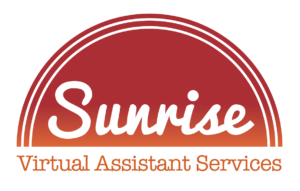Everyone deserves accolades! Celebrating autistic entrepreneurs highlights their remarkable achievements and promotes awareness and understanding within wider communities.
You can find success from the farthest corners of the autism community to that of the business sector if you’re looking in the right places.
Let’s talk about the connection between business and neurodiversity!
Entrepreneurship is all about innovation, resilience, and those unique perspectives that really set people apart. It’s no wonder that these traits often resonate with the strengths of autistic individuals.
For those on the autism spectrum, diving into entrepreneurship is a fantastic way to tap into their skills and interests. It’s a chance to showcase their incredible neurodiversity and carve out their own path in the world!
This article highlights inspiring role models, shares practical success tips, and explores strategies to empower neurodivergent individuals to achieve entrepreneurial success.
Autistic Entrepreneurs Paving the Way
John Elder Robison
Known for his memoir “Look Me in the Eye,” John Elder Robison is also a successful entrepreneur. He founded Future Horizons, a consulting company that helps organizations understand autism spectrum disorder (ASD).
Through his work, Robison empowers both neurodivergent entrepreneurs and businesses by fostering inclusive work environments. His efforts have made a difference, helping organizations see the amazing talents of autistic individuals and encouraging them to support their growth.
It’s all about recognizing their potential and making sure they have the chance to shine!
Ari Ne’eman
Ari Ne’eman founded the Autistic Self Advocacy Network (ASAN), which empowers autistic individuals to advocate for themselves and their community. A nonprofit organization, ASAN promotes self-determination, inclusion, and equality, redefining how the world perceives and treats autistic people.
Ne’eman’s work has cultivated an international collaboration of talented individuals with similar goals, promoting a global message of self-advocacy and independence.
By sharing their journeys, entrepreneurs like Robison and Ne’eman emphasize how focusing on strengths and neurodiverse perspectives can drive entrepreneurial success for autistic individuals.
Overcoming Challenges with Success Tips
Every entrepreneur faces challenges, but autistic individuals experience distinct obstacles that require innovative solutions.
Practical strategies include the following key tools and habits for navigating the professional world and running a successful business.
- Embrace Your Unique Perspective
One of the greatest strengths of the autistic mind lies in diverse viewpoints. A different way of thinking can lead to groundbreaking business ideas and niche solutions.
For instance, John Elder Robison channeled his understanding of autism into a business model that supports inclusivity.
Tip: Reflect on your interests and creative abilities. Use them to guide your business model and identify opportunities that align with your strengths.
- Build a Support Network
No entrepreneur succeeds alone. Developing a reliable network of family members, mentors, peers, or even social enterprises fosters support and enables guidance.
Communities like the Art of Autism or local autism organizations provide shared connections for autistic individuals and social entrepreneurs with similar goals.
Tip: Join forums, professional events, or social media groups tailored to neurodivergent entrepreneurs to find understanding peers.
- Utilize Assistive Technology
Technology is a game-changer. Scheduling apps, communication platforms, and tools that aid with social interaction can enhance efficiency and reduce stress.
Options such as Trello for task management or speech-to-text tools for those with communication preferences create a work environment that suits individual needs.
Tip: Experiment with apps and tools to discover ones that simplify challenging tasks.
- Prioritize Self-Care
Entrepreneurship can be stressful for anyone, but autistic individuals might face additional sensory overload.
Prevent burnout by setting boundaries, taking breaks, and designing a work environment that promotes comfort (minimizing noise, bright lights, or social pressures).
Tip: Create a personalized routine that combines productivity with rest, ensuring balance for both mental well-being and professional success.
- Focus on Niche Markets
Entrepreneurial aspirants often find greater success by targeting niche markets.
For example, Jenny Anderson, an autistic entrepreneur, built a business catering specifically to individuals with developmental disabilities. Your business can stand out by focusing on what makes you passionate or curious.
Tip: Consider industries that align with your obsessive topics or creative interests—whether it’s art forms, technology, or unique products.
- Continue Learning
The world of small businesses evolves constantly. To stay ahead, immerse yourself in resources that build skills and spark inspiration.
Attend educational events, read blog posts, watch film reviews related to your field, or explore innovative education options.
Tip: Never stop absorbing information that helps you adapt and remain competitive.
The Positive Impact of Empowering Autistic Entrepreneurs
Why is it important to celebrate autism-friendly entrepreneurship?
First, autistic-owned businesses foster a culture of other people seeing neurodivergent individuals in positions of strength and leadership. Second, these businesses contribute to economic growth, jobs, and diversity in industries across various sectors.
April 2nd marks annual World Autism Awareness Day, and events throughout Autism Awareness Month highlight the extraordinary ventures, young adults, and creative abilities of people who often think outside the box.
Remember, supporting autistic individuals not only contributes positively to the autism spectrum community but also inspires the broader population and showcases the beauty of diverse perspectives.
New Opportunities for Aspiring Entrepreneurs
New generations are stepping up to redefine what entrepreneurial success looks like. With resources like online guides, social skills training, and international collaboration increasing accessibility for neurodivergent entrepreneurs, there’s no limit to what autistic people can achieve.
Organizations like Extraordinary Ventures and thought leaders like Temple Grandin emphasize providing opportunities and positive representation.
By continuing to celebrate autism within companies, startups, and culture, we can move toward a world fully inclusive of autistic individuals and their groundbreaking contributions.
Inspire, Advocate, Thrive
Celebrating autistic entrepreneurs starts with acknowledging their talents, hard work, and courage to pursue their dreams.
By fostering awareness through stories like those of Robison and Ne’eman, we remind ourselves of the importance of creating spaces that support success for all.
To aspiring neurodivergent entrepreneurs—your unique viewpoint is your strength. Pursue your business idea, lean on tools and communities designed to help you grow, and take pride in who you are.
Want to connect with more neurodivergent entrepreneurs or learn new ways to launch your venture? Join AudHD Asset, a network that empowers autistic minds across industries.
Together, we can open more doors for entrepreneurial success and celebrate autism all year round.


